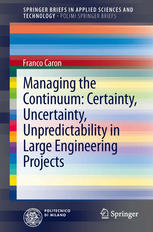

Most ebook files are in PDF format, so you can easily read them using various software such as Foxit Reader or directly on the Google Chrome browser.
Some ebook files are released by publishers in other formats such as .awz, .mobi, .epub, .fb2, etc. You may need to install specific software to read these formats on mobile/PC, such as Calibre.
Please read the tutorial at this link: https://ebookbell.com/faq
We offer FREE conversion to the popular formats you request; however, this may take some time. Therefore, right after payment, please email us, and we will try to provide the service as quickly as possible.
For some exceptional file formats or broken links (if any), please refrain from opening any disputes. Instead, email us first, and we will try to assist within a maximum of 6 hours.
EbookBell Team

4.8
34 reviewsThe brief will describe how to develop a risk analysis applied to a project , through a sequence of steps: risk management planning, risk identification, risk classification, risk assessment, risk quantification, risk response planning, risk monitoring and control, process close out and lessons learning. The project risk analysis and management process will be applied to large engineering projects, in particular related to the oil and gas industry. The brief will address the overall range of possible events affecting the project moving from certainty (project issues) through uncertainty (project risks) to unpredictability (unforeseeable events), considering both negative and positive events. Some quantitative techniques (simulation, event tree, Bayesian inference, etc.) will be used to develop risk quantification. The brief addresses a typical subject in the area of project management, with reference to large engineering projects concerning the realization of large plants and infrastructures. These projects are characterized by a high level of change, uncertainty, complexity and ambiguity. The brief represents an extension of the material developed for the course Project Risk Analysis and Management of the Master in Strategic Project Management (Erasmus Mundus) developed jointly by Politecnico di Milano, Heriot Watt University (Edimburgh) and Umea (Sweden). The brief may be used both in courses addressing project management subjects and by practitioners as a guide for developing an effective project risk management plan.